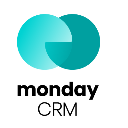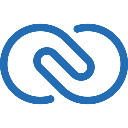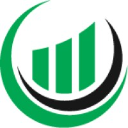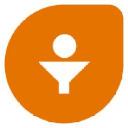Finding the Right Healthcare CRM: A Guide to the Top 8 CRM Solutions for the Medical Sector
The healthcare sector has unique needs when it comes to customer relationship management. In order to ensure the best possible patient care, healthcare organizations need a CRM solution tailored specifically to their needs. With so many options available in the market, selecting the right software can be a daunting task. To help you make an informed decision, we’ve put together this guide on the top 8 CRM solutions for healthcare institutions and businesses.
The Importance of HIPAA Compliance When Choosing a Healthcare CRM Software
Before we begin, it's essential to emphasize the importance of using CRM tools that are compliant with HIPAA requirements. Your chosen CRM must adhere to all the security and privacy regulations set by the Health Insurance Portability and Accountability Act (HIPAA).
HIPAA compliance ensures that any medical information stored in the CRM system remains secure and private, protecting the privacy of patients. Moreover, it also prevents organizations from facing expensive fines or lawsuits due to any potential data breaches.
Now let's dive in and explore the top 8 HIPAA compliant CRM solutions for healthcare and providers.
Salesforce Health Cloud as CRM for Healthcare
Salesforce Health Cloud is a powerful and comprehensive CRM solution that is tailored specifically for the healthcare industry. It integrates data from multiple sources, offers secure collaboration among members of the caregiving network, provides standard objects which make field-level control over patient information possible, and integrates with IoT devices to provide real-time monitoring and diagnosis related services. Its overall goal is to help healthcare institutions to better manage patient information and interactions with medical care providers.
Pros and Cons of Salesforce Health Cloud CRM
It offers many advantages to healthcare organizations, including:
- secure collaboration among members of the caregiving network;
- integration with IoT devices for real-time monitoring and diagnosis related services;
- field-level control over patient information storage;
- data storage from multiple sources in one place;
- personalization of patient care and healthcare provider communication.
One of the main disadvantages is that, due to its complexity and advanced features, it can be difficult to learn and use. This may require additional training and resources. Additionally, Salesforce Health Cloud is only available in certain languages, so organizations with a global presence may need to find an alternative solution.
Key Functionalities of Salesforce Health Cloud CRM
Salesforce Health Cloud features:
- intelligent care management;
- secure collaboration;
- integration with devices and medical equipment;
- data integration from multiple sources into one location;
- secure collaboration among members of the caregiving network to access care plans and connect with health providers.
Zendesk CRM for Healthcare
Zendesk Healthcare CRM offers comprehensive customer service capabilities and data management that help to improve patient care, streamline processes and ensure HIPAA compliance. The software comes with a suite of features that allows organizations to automate appointment reminders, secure chatbot interaction, real-time analytics, customer help centers, unified agent workspaces, and more.
Pros and Cons of Zendesk CRM for Healthcare
The pros of Zendesk CRM for healthcare are:
- numerous integrations that enable healthcare organizations to manage patient data from multiple sources (e.g. appointment history and electronic health records);
- easy streamlining of processes such as co-payments, prescriptions and appointment scheduling;
- detailed analytics to monitor patient interactions;
- its ability to optimize and streamline services to both patients and medical staff.
One of the main disadvantages of Zendesk CRM for healthcare organizations is that it requires a GDPR plugin to be installed in order to make the system HIPAA compliant.
Key Functionalities of Zendesk CRM for Healthcare
Zendesk CRM for healthcare provides medical organizations with powerful tools to
- manage patient data;
- automate processes;
- deliver secure customer service;
- automate appointment reminders via SMS or email to patients;
- secure interactions via chatbots;
- analyze data in real-time;
- unify agent workspaces;
- manage help centers.
HIPAA CRM for Healthcare
When it comes to managing patient data, healthcare organizations need tools that can help them remain compliant with the Health Insurance Portability and Accountability Act (HIPAA). That’s where HIPAA CRM comes in. This comprehensive CRM software solution provides one of the most reliable and secure ways to store and manage all of your customer and patient data.
Pros and Cons of HIPAA CRM
HIPAA CRM is an ideal solution for healthcare and medical providers because it provides:
- a secure, reliable way to store and manage patient data while ensuring compliance with the Health Insurance Portability and Accountability Act (HIPAA);
- features that are tailored to meet the unique needs of healthcare providers;
- quick access to clearly organized patient information and medical key data.
The main downside of the HIPAA CRM solution is that it could be difficult for some organizations to afford. Additionally, staff members may need additional training in order to use the software effectively, which could add to the needed budget.
Key Functionalities of HIPAA CRM
Key functionalities of HIPAA CRM include:
- secure document storage;
- backup and security features;
- customer support tools;
- an intuitive user interface;
- streamlining of nation-wide customer support process;
- integration between sales and customer/patient support workflows.
Monday.com Healthcare CRM
Monday.com is one more HIPAA-compliant CRM software designed to make healthcare professionals’ lives easier and more efficient by providing them with secure patient data storage, customizable workflows, and streamlined communication.
Pros & Cons of Monday.com Healthcare CRM
The advantages of Monday CRM for healthcare institutions are:
- easy set-up and user friendliness;
- advanced security features and HIPAA compliance for safe storage of patient information;
- its simplicity to adjust the system according to individual needs;
- streamlined communication between providers and patients;
- automation of repetitive tasks for improved efficiency;
- its ability to personalize patient care.
One disadvantage of Monday CRM for healthcare is that users of the Enterprise Plan do not have access to a free trial, though an Individual plan option is available.
Key Functionalities of Monday.com Healthcare CRM
Some key functionalities of Monday's Healthcare CRM suite include:
- task automation;
- streamlined communication between providers and patients;
- customizable workflows;
- secure patient data storage;
- IP restrictions and a panic button for HIPAA compliance.

monday CRM
Zoho CRM for Healthcare
Zoho CRM for Healthcare is a robust customer relationship management that fulfills the specific requirements of healthcare organizations. The software offers streamlined operations with increased efficiency to improve patient satisfaction. It provides users with an array of tools and features that enable them to manage staff, patients, projects and inventory in a HIPAA-compliant environment.
Pros and Cons of Zoho CRM for Healthcare
Zoho CRM for healthcare allows clinicians to:
- simplify communication processes;
- monitor interactions with patients and distributors;
- use a variety of forms, shifts management tools, a centralized patient record database and analytics tools;
- automate workflows such as prescriptions of medications;
- encrypt and back up patient records to the cloud to secure sensitive information.
On the downside, Zoho CRM for Healthcare is limited in terms of customization options and the cost of subscribing to all its features may exceed the budget of small organizations.
Key Functionalities of Zoho CRM for Healthcare
Zoho CRM for healthcare provides:
- a centralized patient record database;
- forms which can be used to capture patient information more efficiently;
- shift management tools that enable healthcare organizations to better manage the work schedules of their staff;
- omnichannel integration of social media, live chat, SMS, telephony.

Zoho CRM
Onpipeline Healthcare CRM
Onpipeline Healthcare CRM is another great CRM solution for healthcare institutions. It offers a comprehensive set of features and tools to help you manage patient relationships, hospital information, billing processes, and medical consulting services.
Pros and Cons of Onpipeline Healthcare CRM
The platform is designed to help your healthcare institution:
- acquire new patients quickly and efficiently;
- maximize sales campaigns;
- provide a better patient care experience;
- visualize sales pipeline management;
- manage your medical information and patient records in an easy way.
Although Onpipeline Healthcare CRM is compliant with HIPAA security requirements, it does not offer data encryption for storage which is not mandated under HIPAA regulations. Furthermore, the software solution may be more expensive than other CRM solutions in the market.
Key Functionalities of Onpipeline Healthcare CRM
The main features of the CRM healthcare software include:
- email tracking;
- marketing automation tools;
- reporting tools;
- file management capabilities;
- tracking of patient information;
- management of billing processes;
- creation of custom reports.

Onpipeline
Freshsales CRM for Healthcare
Freshsales offers modern and easy-to-use healthcare CRM tools that help medical institutions build strong relationships with their patients. It provides an all-in-one view of patient and doctor data, automates billing activities, captures interactions between staff, and patients in one place and increases productivity with customized views of contacts.
Pros and Cons of Freshsales CRM for healthcare
The key advantages of Freshsales CRM are:
- the comprehensive view of patient and provider data, giving a 360° view of medical records;
- automation of daily billing activities, ensuring accuracy and reducing manual entry errors;
- monitoring of interactions between staff and patients in one place for easy retrieval and review.
The downside is that Freshsales CRM is comparably new in the market and may not have all the features already available in more established healthcare CRM solutions.
Key Functionalities of Freshsales CRM for healthcare
Freshsales Healthcare CRM key functionalities include:
- automated workflow management;
- powerful analytics;
- appointment setting;
- billing information management;
- a unified view of patients' and providers' data to better streamline day-to-day processes in any medical facility;
- use in multiple languages and multiple currencies.

Freshsales
HubSpot CRM for the Healthcare sector
Designed as an all-in-one business tool, HubSpot CRM offers a suite of features that can help streamline processes, gather context from customer interaction at various touchpoints, create searchable libraries of support articles and empower customers with control over their service experience. With security features like Single Sign On, and customizable Deal Pipeline view, HubSpot CRM is also a solid solution for healthcare organizations looking to take control of their patient relations.
Pros and Cons of HubSpot CRM for the healthcare sector
The main advantages of using HubSpot CRM in your healthcare organization are:
- its ability to streamline processes and to automate tasks. This saves valuable time and resources that can then be invested in more important areas, such as patient care;
- its strong security features, giving organizations peace of mind when it comes to data protection and privacy;
- its vast suite of tools to create and manage educational content and marketing material.
On the flip side, some healthcare organizations may find that HubSpot CRM's features don't quite meet their specific needs. For example, while it offers powerful customer service tools, they may not be as advanced as those offered by other, more specialized solutions on the market.
Key Functionalities of HubSpot CRM for the Healthcare Sector
HubSpot CRM is jam-packed with features that can help healthcare and medical organizations manage their patient relationships:
- CRM functions to quickly enter patient data into the system without having to manually type it out;
- management of contact information;
- process automation tools;
- e-mail tracking and appointment scheduling;
- customizable dashboards to get a quick overview of patient interactions;
- sales prospecting tools;
- functions to create and manage marketing content, monitor and analyze inbound marketing activities.
What Healthcare CRM Solution Will Best Fit Your Organization's Needs?
All of the healthcare CRM solutions presented here offer unique sets of features and advantages.
When it comes to choosing the best healthcare CRM solution for your organization, think about your specific needs and what features would be most beneficial in better managing your medical teams' day-to-day work and optimizing your patient relationships.
Once you have identified your individual requirements, the next step is to request demos with the healthcare CRM solutions that seem to fit your criteria. This will help you get a better understanding of the features and how they can be tailored to best meet your organization's goals.